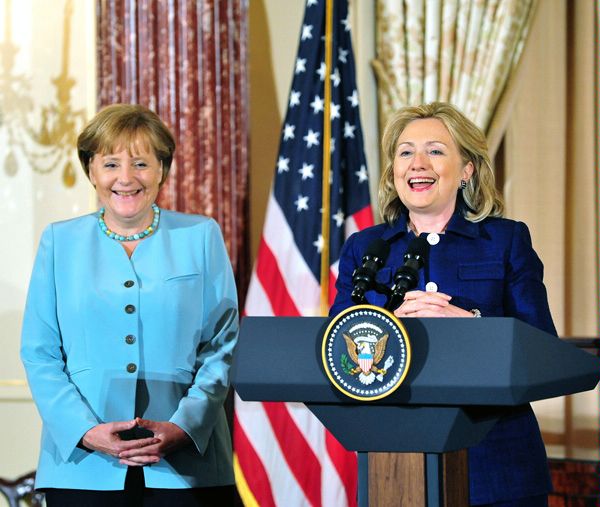
In 2008, US president Barack Obama won the largest Democratic mandate in a generation, in part, by pledging to change the tone in Washington.![]()
But in 2016, after eight years of increasingly bitter and partisan posturing, it’s Obama’s one-time rival, Hillary Clinton, who now has the opportunity to transcend the hyper-partisanship that began with the divided government under her husband’s administration in the 1990s.
Donald Trump’s hostile takeover of the Republican Party laid bare the long-growing schism among various Republican constituencies. Currently, the two living former Republican presidents (George H.W. Bush and George W. Bush), the party’s most recent presidential nominee (former Massachusetts governor Mitt Romney), its one-time 2016 frontrunners (former Florida governor Jeb Bush, Wisconsin governor Scott Walker, Texas senator Ted Cruz and Florida senator Marco Rubio) and the Republican in the highest-ranking elected official — speaker of the House (Wisconsin congressman Paul Ryan) — have all refused to endorse Trump.
* * * * *
RELATED: That transcending ideology thing from 2008?
Merkel did it. Obama hasn’t.
* * * * *
Despite the promise that the coming general election will be nasty, even by the recent standards of American politics, Clinton, if she’s nimble enough, can become a unifying and moderate figure who can work with both Republicans and Democrats. If Trump loses as badly as polls suggest he might, the Republican Party will be a shambles on November 8. The fight for Senate control was always a toss-up, and a Trump debacle could endanger even Republican control of the House of Representatives.
Increasingly, the debate in world politics is tilting away from traditional left-right discourses, replaced by a much darker fight, for the first time since the 1930s, between populist nationalism and globalist internationalism — and not just in the United States, but everywhere from the Philippines to the United Kingdom. In that fight, Ryan (and Bush and moderate Republicans) have much more in common with Clinton and the officials who will lead a Clinton administration than with Trump.
Make no mistake, if Clinton wins the presidency in November, she’s not going to form a German-style ‘grand coalition’ with Ryan and leading Republicans. Postwar German politics operates largely on consensus to a degree unknown in American (or even much of European) politics. Still, German chancellor Angela Merkel has already paved the way for how a successful Clinton presidency might unfold, and Clinton advisers would be smart to figure out, as the campaign unfolds, how to position Clinton as a kind of American ‘Mutti.’ Clinton is already reaching out to moderate Republican donors, but the challenge goes much deeper — to become a kind of acceptable figure to both blue-state and red-state America.
It’s not clear that Clinton has the same political skill to pull off in the United States what Merkel has done in Germany.
But it’s a rare opportunity, nonetheless, if she can. Continue reading Can Hillary Clinton become America’s Mutti?